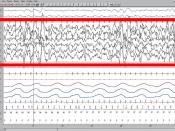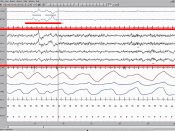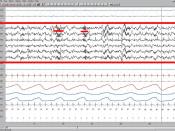People differ on whether or not they can remember their dreams. Some people have a great deal of interest in their dreams, have very vivid dreams or their level of anxiety or sleep quality results in people remembering dreams at different amounts each month, say. In general, for all of us dreams are very easily forgotten once we wake up if we don't consolidate them or in other words if we don't transfer them from short-term to long term memory immediately upon waking( ZenCyn- Cyndi Russell 1996-2008).
The unconscious is a force or a knowledge that we do not allow ourselves to see. It is an unrealized part of the mind and it's self-contained and functions independently from us. This is what distorts and displaces our dreams. It is the higher form of dream i.e. it contains unseen thoughts and repressed wishes unlike a child's which is predominantly concerned with the preconscious thoughts.
It is this that creates the strange images in our dreams that would seem to contradict our normal behavior and lead down the road to conclude that the motive for a dream is not a wish fulfillment. Freud argued that the images and scenes we see in our dreams are not necessarily to be taken as face value. He supposed that all dreams should be analyzed with the wish fulfillment theory firmly in mind (World of Lucid Dreaming, n.d.).
In order for people to dream, they must be in a period of rest which they lose awareness of their surroundings. This is more commonly known as sleep. Once a person has fallen asleep, they will enter into the first of five stages of sleep. Stages one through four are usually termed as non-REM sleep with stages three and four also being referred to as delta sleep, due...


